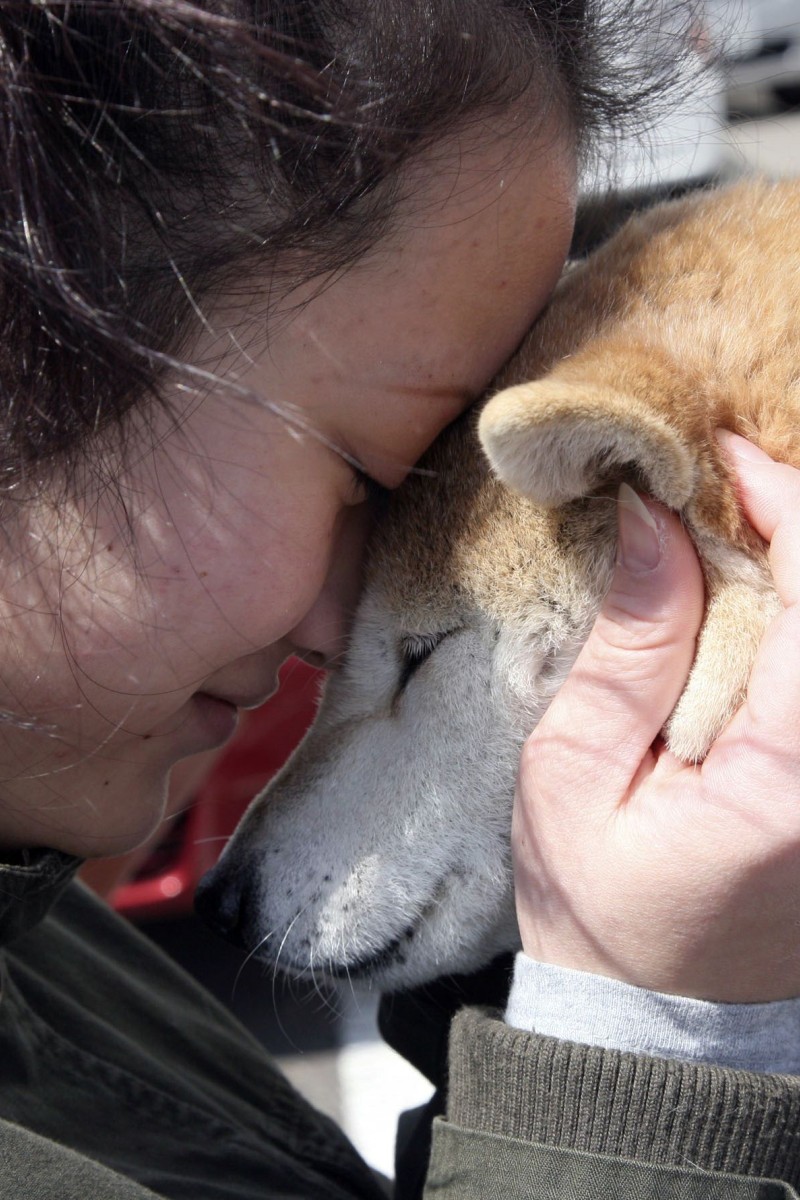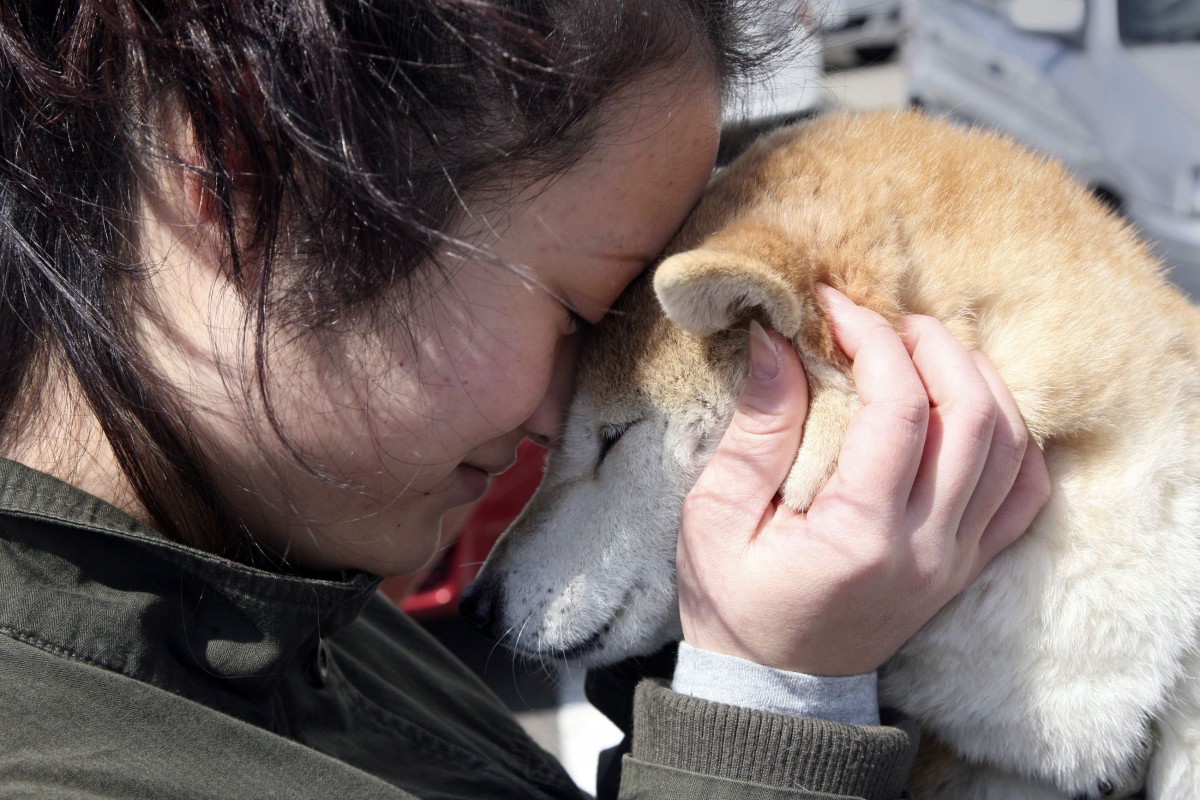
Fukushima: Dads still looking for missing kids
 17-year-old evacuee Shoko Igarashi, hugs her dog that will have to be looked after by friends while she goes into a shelter in Koriyama in Fukushima.
17-year-old evacuee Shoko Igarashi, hugs her dog that will have to be looked after by friends while she goes into a shelter in Koriyama in Fukushima.Takayuki Ueno did not hesitate one moment to expose himself to high radiation five years ago while searching for family members swept away by the tsunami that triggered meltdowns at the Fukushima nuclear plant.
The bodies of his mother and daughter Erika were found. But Ueno braves radiation and bitter cold on beaches near the crippled plant to look for the remains of his father and son Kotaro, then three years old, to bring closure to his loss.
"My highest duty as a parent was to protect my children, which I failed to fulfill. That makes me the worst parent, and I have to apologise to them," Ueno, 43, said.
"I was able to hold Erika in my arms and say 'I am sorry'. I still have to do the same to Kotaro," said Ueno, who lives 22 km north of the Fukushima nuclear plant.
A magnitude 9 earthquake and towering tsunami on March 11, 2011 killed nearly 16,000 people along Japan’s northeastern coast and left more than 2,500 missing.\
The nuclear disaster at Tokyo Electric Power Co’s Fukushima Daiichi nuclear plant has made the experience of those who lived nearby particularly traumatic.
Norio Kimura, who lived 3 km south of the plant, had to choose between staying behind to search for his father, wife and younger daughter Yuna, or taking his mother and elder daughter away from spreading radiation.
"I was torn by having to abandon my search and leave them behind... By the time I came back, the situation had become quite grim when it comes to finding them alive," Kimura, 50, said.
The accident makes it difficult for Kimura to search for Yuna, the last family member missing, as entry into half of his hometown, Okuma, is restricted due to high radiation levels.
On a recent weekend, Kimura and a dozen volunteers led by Ueno, combed through piles of debris on a windswept Okuma beach for any signs of Yuna. They are allowed to enter the area up to 30 times a year and stay for up to five hours per visit.
As they dug through heaps of dirt mixed with driftwood, blocks of concrete, utility poles, crooked iron pipes and clothes of all sizes and colours, a dosimetre emitted high-pitched beeps. At one point, it showed six microsieverts per hour, 100 times as high as radiation levels in downtown Tokyo.
That does not shake Kimura’s resolve.
"I’ll keep on searching until I find her," Kimura said, adding that even then he might keep looking for other missing victims.
Such tenacity can be partly explained by views of life and death widely held in Asia, experts say. "Once dead, a body itself is often seen and treated as an object in the West," said Shinichi Niwa, adjunct professor of psychiatry at Fukushima Medical University’s Aizu Medical Center. "In Asia, there is a strong belief that one’s spirit stays with the body and they are not separated," he said.
